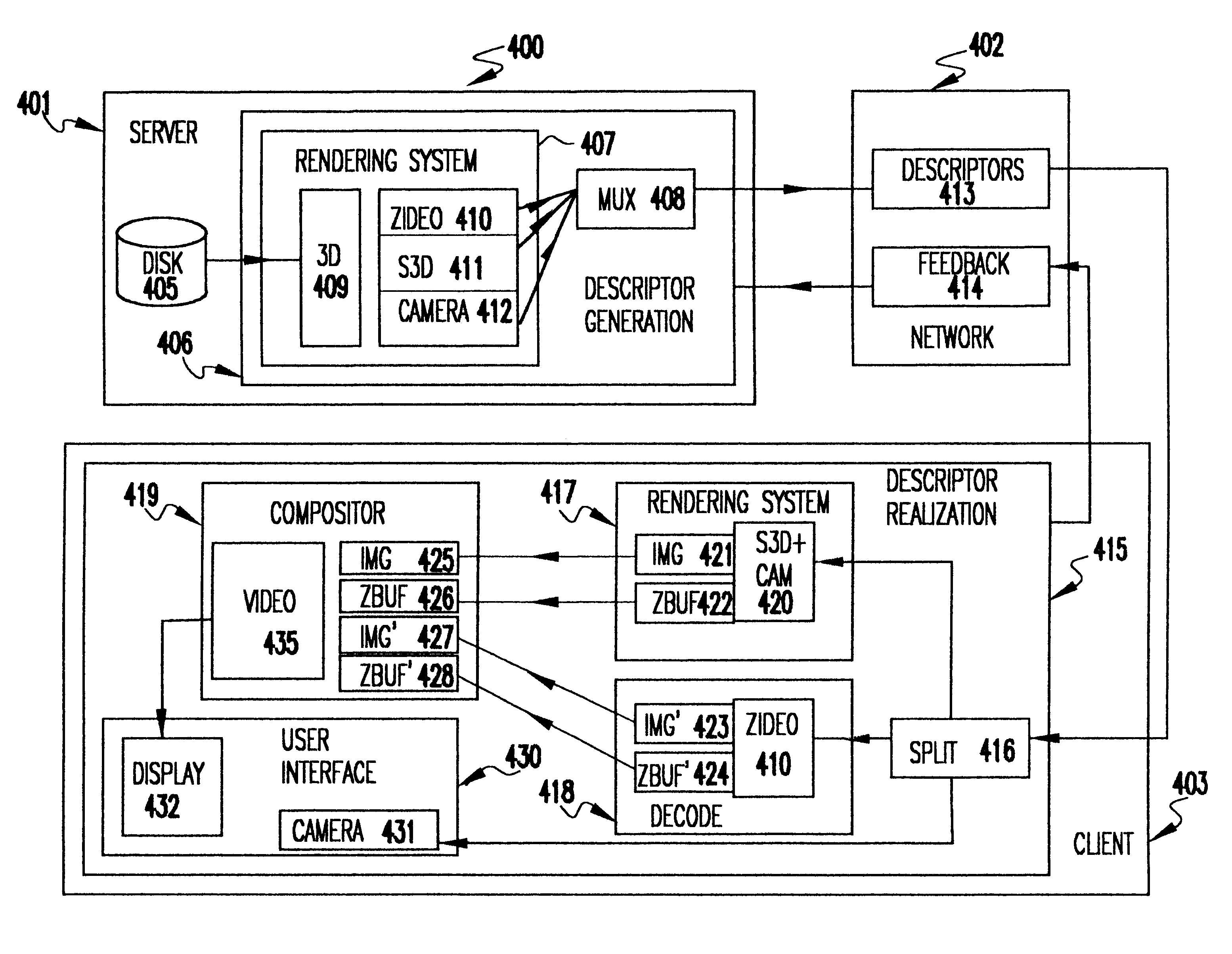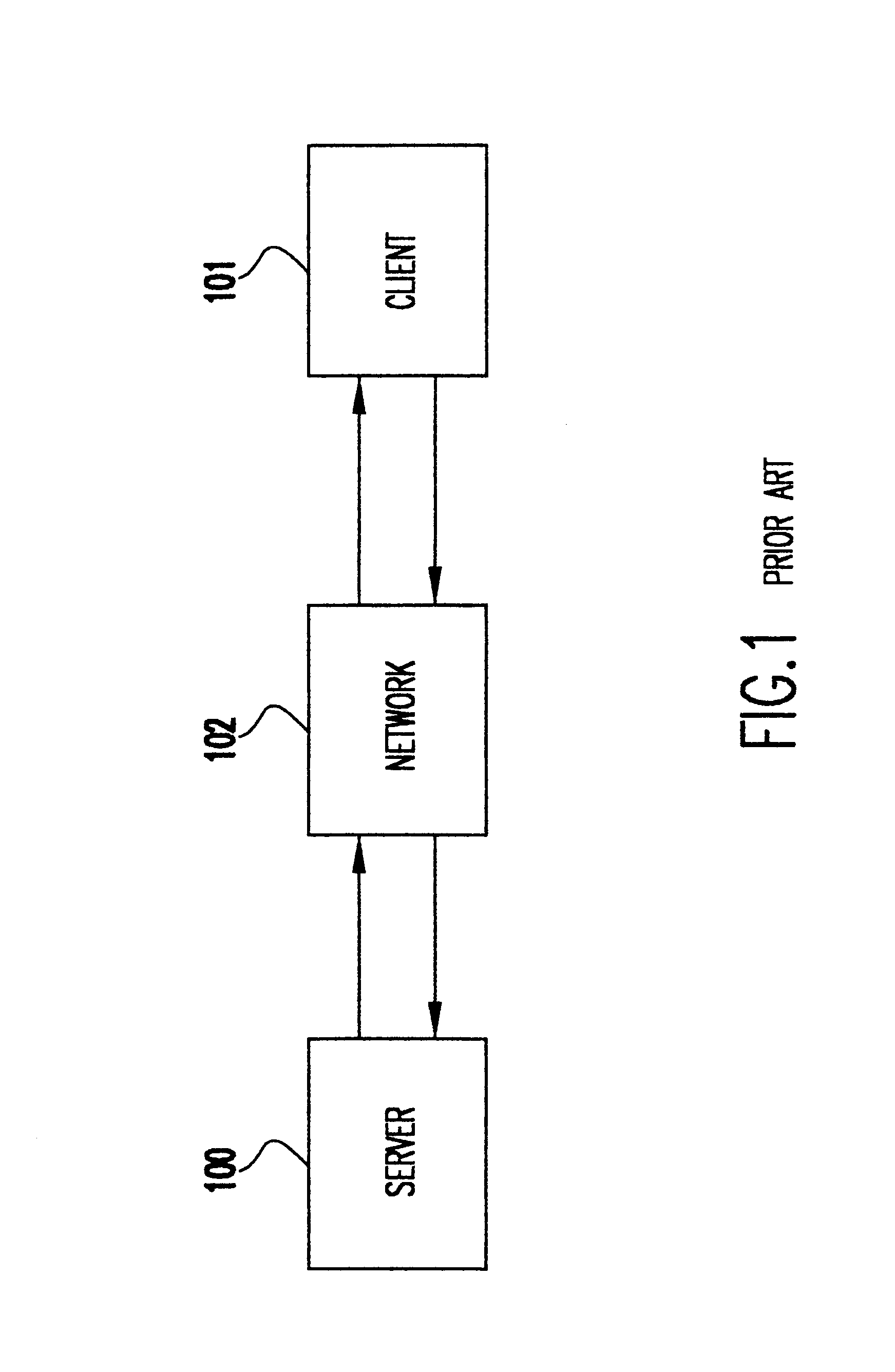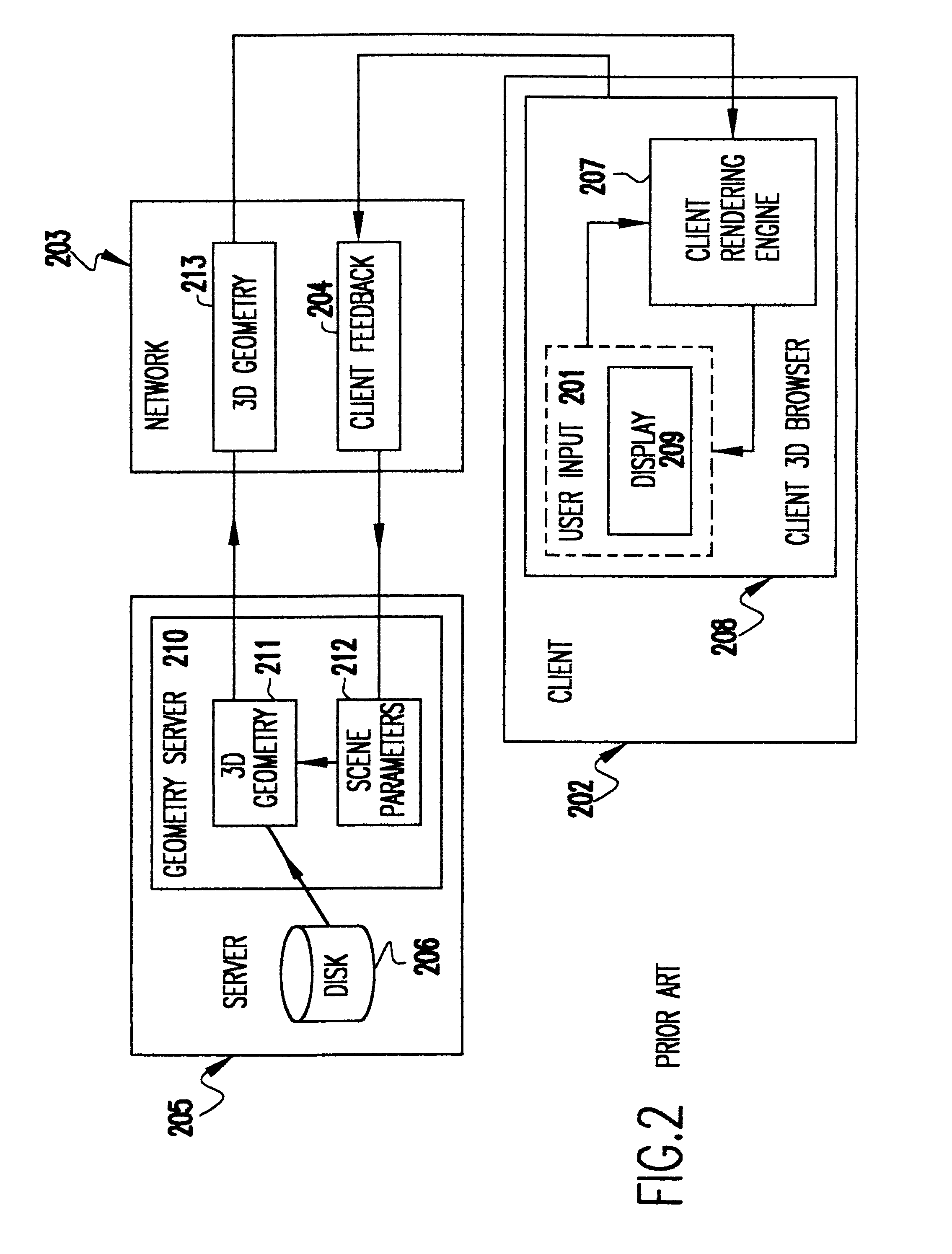Methods and apparatus for delivering 3D graphics in a networked environment
a network environment and 3d graphics technology, applied in the field of graphics processing and display systems, can solve the problems of increasing the time required for the client to download, and increasing the time required for downloading
- Summary
- Abstract
- Description
- Claims
- Application Information
AI Technical Summary
Problems solved by technology
Method used
Image
Examples
Embodiment Construction
This invention is a system which provides a continuous, seamless spectrum of rendering options between server-only rendering and client-only rendering. The system adaptively chooses a particular rendering option to accommodate system factors such as:
available network bandwidth,
client three-dimensional graphics capabilities, central processing unit (CPU) capabilities, and CPU load;
server three-dimensional graphics capabilities, CPU capabilities, and CPU load;
display image size;
eye position used for rendering;
scene complexity (for example number of connected components, number of triangles, and so forth);
depth complexity;
division of geometry between the foreground and the background; and
the number of pixels per triangle.
The present invention is a system for generating and delivering rendered images of synthetic content, consisting of one or a plurality of three-dimensional geometric models, across a computer network. The system uses a server computer and a client computer and permits ...
PUM
 Login to View More
Login to View More Abstract
Description
Claims
Application Information
 Login to View More
Login to View More - R&D
- Intellectual Property
- Life Sciences
- Materials
- Tech Scout
- Unparalleled Data Quality
- Higher Quality Content
- 60% Fewer Hallucinations
Browse by: Latest US Patents, China's latest patents, Technical Efficacy Thesaurus, Application Domain, Technology Topic, Popular Technical Reports.
© 2025 PatSnap. All rights reserved.Legal|Privacy policy|Modern Slavery Act Transparency Statement|Sitemap|About US| Contact US: help@patsnap.com



